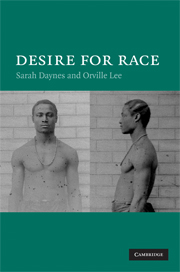Book contents
- Frontmatter
- Contents
- Acknowledgements
- Introduction
- 1 American sociology
- 2 Marxism
- 3 British social anthropology
- 4 British cultural studies
- 5 Intermediate reflections on essentialism
- 6 Belief and social action
- 7 Theorizing the racial ensemble
- 8 The politics of memory and race
- 9 Desire
- Conclusion
- Bibliography
- Index
Conclusion
Reflections on theory and method
Published online by Cambridge University Press: 22 September 2009
- Frontmatter
- Contents
- Acknowledgements
- Introduction
- 1 American sociology
- 2 Marxism
- 3 British social anthropology
- 4 British cultural studies
- 5 Intermediate reflections on essentialism
- 6 Belief and social action
- 7 Theorizing the racial ensemble
- 8 The politics of memory and race
- 9 Desire
- Conclusion
- Bibliography
- Index
Summary
Indeed, it is a fundamental postulate of sociology that a human institution cannot rest upon error or falsehood. If it did, it could not endure. If it had not been grounded in the nature of things, in those very things it would have met resistance that it could not have overcome … But we must know how to reach beneath the symbol to grasp the reality it represents and that gives the symbol its true meaning.
(Durkheim 1995: 2)We conclude our analysis by returning to the launching point of this inquiry: the question of the reality of race. We have maintained a singular focus on the articulation of the reality of what is essentially an idea. We have sought to demonstrate that the reality of race is not determined by an original moment of culture contact, experience, or practice, but rather by the peculiar force of the belief in the idea of race. Long ago, Émile Durkheim put forward the claim that religion, like all human institutions, “begins nowhere.” We hold the same view of race: it begins nowhere insofar as no historical moment or context of emergence can explain the efficacy and persistence of the idea itself. However, the idea of race is made real in multiple sites and ways. Belief in race is reinforced by the pursuit of origins, by the anamnesis of the past, the statistical and theoretical affirmation of the existence of racial groups, and modes of unconscious attachment.
- Type
- Chapter
- Information
- Desire for Race , pp. 214 - 229Publisher: Cambridge University PressPrint publication year: 2008

